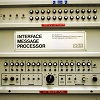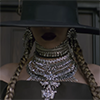
In 1973, Thomas Andrew Lehrer quit comedy because “political satire became obsolete when Henry Kissinger won the Nobel Peace Prize.” Those born after Lehrer’s retirement are likely to be familiar with him because he once sang the periodic table of elements to the tune of “I Am the Very Model of a Modern Major General” from Gilbert and Sullivan’s The Pirates of Penzance. His songs, much like those of Gilbert and Sullivan, are often, as he put it, “full of words and music, signifying nothing,” with rapid-fire lyrics that take a great delight in the way language sounds. They are composed by someone perhaps just a bit too impressed with his own cleverness. Lehrer’s influence on me is plain to see. As my partner exclaimed upon hearing him for the first time, “Oh, this is how you found your personality!”
Lehrer has been on my mind recently, and not just because it will be his 96th birthday in April or because I always find myself quietly humming “Poisoning Pigeons in the Park” as spring approaches. Rather, I’ve been stuck on how he depicts academia. “Bright College Days” was his satirical take on the traditional college alma mater song derived from Lehrer’s own experience at Harvard University in the 1940s, which he appropriately signaled through digs at Yale (“To the tables down at Mory’s / Wherever that may be”). And then the song goes:
To excuses we fibbed
To the papers we cribbed
From the genius who lived down the hall. . . .
We shall sleep through all the lectures
And cheat on the exams
And we’ll pass, and be forgotten with the rest.
In the live recording, you can hear the rueful, knowing chuckles of his similarly educated audience. Cheating and plagiarism were, Lehrer’s song suggests, accepted parts of mid-20th-century undergraduate culture at some elite institutions. That the joke landed with listeners suggests that it had in it at least a spark of truth.
To my ear, the banality of cheating, here and elsewhere in Lehrer’s works (as he sang in “Lobachevsky,” “Plagiarize / let no one else’s work evade your eyes”) is discordant with today’s discourse around the same. I have long felt inundated with think pieces crying “O tempora! O mores!” over academic dishonesty, particularly among undergraduates. But R. I. Moore, John Boswell, and others have shown that the laws, customs, and habits a society chooses to talk about do not directly relate to the ubiquity or permissibility of violations. Cheating has always been forbidden, and it was also always ubiquitous—at least according to Lehrer’s recollections of life at Harvard. Why now the furor?
The current concerns about cheating could easily be chalked up to the tired trope of older generations bemoaning the habits of youths. New technologies have perhaps also made academic cheating easier and more accessible. But I think there is also an element of a reactionary response to the postwar diversification of the academy at play here. Long gone are the days of the “gentleman’s C,” and with it the idea that there are different reasons for “gentlemen” to go to college and different expectations for them when they’re there.
“Pollution fear,” Moore observed, “is the fear that the privileged feel of those at whose expense their privilege is enjoyed.” As people who were not white men entered the academy, new terminologies and discourses sprang up to protect the previously privileged. The increase in the number of women in the academy, for example, coincides with a growing distinction between “hard” and “soft” sciences. The gender, racial, and cultural makeup of the standard undergraduate class today is a far cry from Lehrer’s Harvard. This means that who even has the opportunity to cheat has changed. Although I don’t mean to suggest that cheating by cribbing essays or dumping a prompt into ChatGPT is acceptable or even tolerable, I do think it is worth questioning why some people seem to care quite so much.
L. Renato Grigoli is the editor of Perspectives on History.
Tags: From the Editor

This work is licensed under a Creative Commons Attribution-NonCommercial-NoDerivatives 4.0 International License. Attribution must provide author name, article title, Perspectives on History, date of publication, and a link to this page. This license applies only to the article, not to text or images used here by permission.
The American Historical Association welcomes comments in the discussion area below, at AHA Communities, and in letters to the editor. Please read our commenting and letters policy before submitting.
Comment
Please read our commenting and letters policy before submitting.










